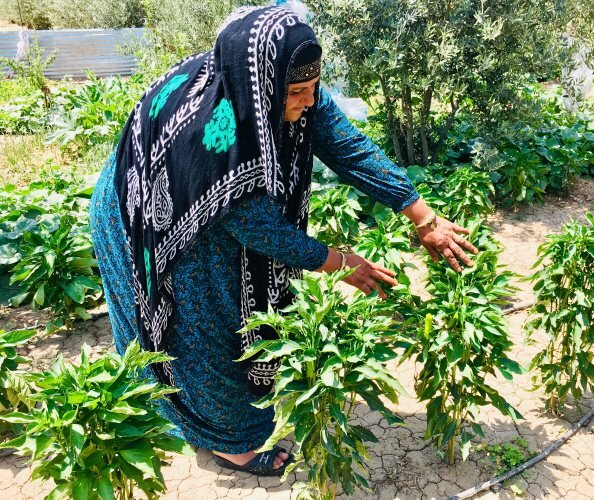Germany again a top supporter of WFP in Iraq
BAGHDAD – The German Government has provided the United Nations World Food Programme (WFP) in Iraq with €17.5 million to address the food needs of Syrian refugees and to support returnees and vulnerable communities. Germany is currently the top donor to WFP’s programme in Iraq and has, for the past four years, consistently ranked among WFP Iraq’s top two donors.
“Iraq is still dealing with building a state fit for the future so that more citizens can return in dignity,” said Jochen Möller, Chargé d’Affaires of the Embassy of the Federal Republic of Germany to Iraq. “That’s why Germany continues to provide assistance to the most vulnerable, while supporting people’s efforts to rebuild their livelihoods,”
The contributions come from the German Federal Ministry for Economic Cooperation and Development (BMZ) and the German Federal Foreign Office (GFFO).
The GFFO share of €2.5 million will support 28,600 Syrian refugees. It builds on the €4.5 million received from GFFO in April in support of WFP’s food assistance for internally displaced families in Iraq. The €15 million received from BMZ will help 52,200 returnees to earn and receive training when working on activities such as replanting harvestable trees and rebuilding canals. The returnees are people who were displaced by the conflict and who have been living in camps for displaced people in Iraq, some of them for many years.
“These German funds are helping WFP to smoothly transition its programmes from relief to development, for vulnerable families who need support,” said WFP Representative in Iraq, Abdirahman Meygag. “With opportunities to earn and learn while rebuilding their lives, people will be able to move forward towards long-term self-sufficiency.”
Indirectly, an additional 63,000 people in vulnerable communities will benefit from restored water networks and rural agriculture production, and from greenhouses in urban areas. Across the country, BMZ funds will contribute to activities on adaptation to climate change.
Young people will also be able to get digital skills and English language training via WFP’s EMPACT – “Empowerment in Action” project. EMPACT provides vocational training for Syrian refugees and vulnerable Iraqi youth. It partners with leading technology firms to provide software training and connect alumni with online work opportunities. EMPACT helps young people and their host communities to build sustainable livelihoods.
# # #
The United Nations World Food Programme - saving lives in emergencies and changing lives for millions through sustainable development. WFP works in more than 80 countries around the world, feeding people caught in conflict and disasters, and laying the foundations for a better future.
Follow us on Twitter @wfp_media @wfp_mena @wfpgovts

